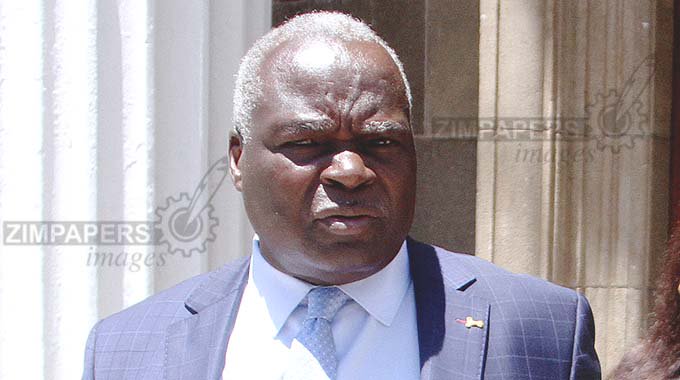EDITORIAL COMMENT: Cyclone Idai: Zimbabwe needs help from international community

WE welcome the outpouring of support from the international community, our regional neighbours and the wider African continent following the calamity that was Cyclone Idai whose ferocity and destructive force left parts of Zimbabwe, Malawi and Mozambique in ruins with thousands of people left homeless and in urgent need of assistance.
We also acknowledge the spirit of giving exhibited by ordinary Zimbabweans who despite their current challenges, mobilised the little they could lay their hands on to render help to the people of Chimanimani, Chipinge and the surrounding areas who were hardest hit by the cyclone.
That spirit of Ubuntu is epitomised by an elderly woman from Harare who walked from Mbare to Highlands to donate to Cyclone Idai survivors.
The determination to help even though she has does not have much, saw Gogo walking to donate her pots to the people of Chimanimani as she did not have bus fare to go to the eastern highlands.
Elsewhere local companies, churches and individuals mobilised resources to assist the victims, a gesture appreciated by President Mnangagwa as he led the nation in mourning people who died when he attended a church service at the Methodist Church in Mabelreign in Harare on Sunday.
Across our borders, help has been coming from the United Arab Emirates, the United Kingdom and the wider European Union and Sadc.
Indeed, the entire world has been horrified by the sheer impact of the Cyclone which pulverised the port city of Beira in Mozambique and swept away whole villages in Chipinge and Chimanimani.
The humanitarian crisis is unprecedented and we welcome the activation of the United Nations agencies such as the World Food Programme to assist the victims.
Rescue efforts are still underway in Mozambique where towns and villages have been cut off from the rest of the country and we appreciate the intervention of regional powerhouses such as South Africa which is providing logistical support in the form of helicopters.
In Zimbabwe, the search continues for those who were buried underneath the rubble of their homes and bodies which were swept away by raging flood waters.
The death toll continues to rise and we commiserate with the families of those who lost their loved ones.
While the nation struggles to cope with the psychological, economic and social impact of the cyclone, we urge the international community to respond positively to our cry for help, particularly the need to rehabilitate key infrastructure, build homes for displaced people and offer psychosocial support to victims of the cyclone.
Government on Monday briefed embassies accredited to Zimbabwe, the UN and other partners on the cyclone-induced disaster, key priority interventions, immediate and short term requirements.
The Minister of Local Government, Public Works and National Housing, Cde July Moyo, who headed a delegation of Ministers, told the diplomats that the nation was trying to recover psychologically, socially and economically following the demise of its citizens, displacement of populations including refugees at Tongogara
Transit Camp and destruction of infrastructure due to the impact of the tropical cyclone.
“In Manicaland the cumulative number of deaths is 179, burials (102), unidentified bodies buried (12), injuries (186), missing people (329) and displaced (6 788). The number of children affected (3 500), displaced refugees (2 000), number of casualties airlifted to Skyline (52), houses affected (7 703), food insecure population (40 064) and number of bridges damaged (11),” he said.
“In Masvingo the number of deaths is 6 while 6 257 people were affected. At least 511 households were displaced and 17 injured.”
Minister Moyo said the numbers were rising as search teams intensify their work.
“Over the hill there is a settlement called Rusitu famous for growing horticulture, bananas and other food stuffs. There people also come to assemble to trade and when we are analysing those who are missing some of the people who are missing are not necessarily from that area and also this is been worsened by the fact that some bodies were washed into Mozambique and the Mozambican villagers buried eight of those but before they buried them they took pictures,” he said.
“These pictures were sent to us in order to see whether we can identify and most of the people around that area were unable to identify them. This indicated that indeed people who were swept were not necessarily from that area. They could have come from other areas.”
“I am mentioning this because in our statistics that we have been churning out we started with 23 deaths, we moved to 31, 42 then we jumped to 64. We were at 67 at some point and as I speak only from yesterday we are at 179 and it could be more.”
We hope the international community will respond positively to Zimbabwe’s plea for help.
Resources are needed to rebuild bridges and roads. Government also requires money to continue dispatching relief and to reach inaccessible areas.
There is urgent need for aviation and ground fuel, transportation and plant and equipment.
Funding is required to rehabilitate or reconstruct some schools.
Water supply infrastructure in Chimanimani, Chipinge, Mutasa, Buhera and Mutare has also been damaged.











Comments